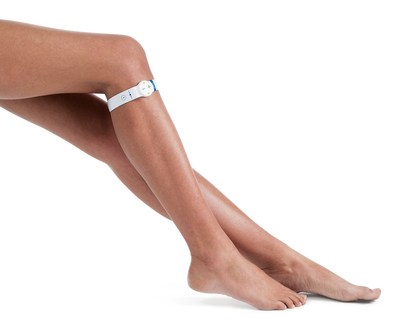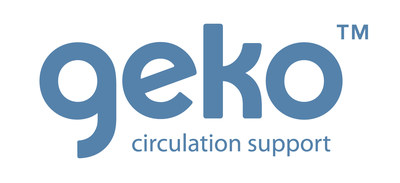TMCnet News
Luton And Dunstable University Hospital Adopt Innovative Blood Clot Prevention Device For Acute Stroke PatientsHIGH WYCOMBE, England, Jan. 6, 2021 /PRNewswire/ -- Sky Medical Technology Ltd, parent company of Firstkind Ltd, a UK-based medical devices company, today announced that Luton and Dunstable University Hospital are the first NHS hospital in the South East to deploy the innovative geko™ device for VTE prevention in immobile acute stroke patients who cannot be prescribed the current standard of care. The current standard of care for VTE prevention recommends a boot-like cuff that compresses the legs to move blood, called Intermittent Pneumatic Compression (IPC) - a mechanical treatment. IPC, however, is not suitable for all patients due to vascular disease, fragile skin, reaction to the cuff materials and patient intolerance. This results in a number of patients for whom there is currently no mechanical treatment for VTE prevention. In an effort to address this unmet need, Luton and Dunstable University Hospital completed a clinical audit of 320 patients, prescribing the geko™ device to those patients who were not suitable for IPC treatment. The geko™ device is a watch-sized device that sticks to the leg to increase blood flow, via painless electrical pulses, at a rate equal to 60%[1] of walking without a patient having to move. The audit results showed a 17% unmet need in all mechanical prophylaxis prescriptions, when the geko™ device was on service, and reported the need for an alternative mechanical prophylaxis intervention and the need to prescribe the geko™ as an alternative anti-stasis device (see poster). These findings are aligned to the IPC compliance findings reported by Roffe & Natarajan[2], and the CLOTS 3 study[3] that reports that patients immediately contraindicated to IPC and patients who become intolerant of IPC could be exposed to a VTE risk of up to 8.7%. The Luton and Dunstable Hospital enhanced pathway now offers a meaningful alternative mechanical intervention. Dr Lakshmanan Sekaran, Consultant Stroke Physician and Clinical Director at the Luton and Dunstable University Hospital, said: "When treating acute stroke patients, VTE is a very real and present threat to their recovery. The existing real-world data, which led us to consider the geko™ device, reinforced that while current methods (IPC) are effective for most patients, a small but significant number are unable to tolerate these methods, leaving them at greater risk of blood clotting. "Recognising the need to provide treatment for this patient group, we embraced the opportunity to examine our unmet need and determine the effectiveness of the geko™ device. The device is now in routine use across our stroke units, when IPC cannot be prescribed, and ensures that all patients can now receive post-stroke VTE prevention." Bernard Ross, Founder and CEO of Sky Medical Technology, the company behind the geko™ device, said: "The willingnes of Luton and Dunstable University Hospital to embrace a safe and effective innovation is hugely significant for acute stroke patients who might otherwise fall between the cracks when it comes to blood clot prevention. Introducing any change to clinical practice requires leadership, energy and collaboration and I applaud them." References:
About the geko™ device NICE guidance (MTG19)[4] recommends use of the geko™ device for VTE prophylaxis in all hospital patients where standard prophylaxis treatments are impractical or contraindicated. The geko™ is a neuromuscular electrostimulation device which prevents blood stasis in the deep veins[5] of the calf by activation of the foot and calf muscle pumps via stimulation of the common peroneal nerve. Weighing just 10g, silent in operation and with no wires or leads, the battery powered geko™ is a daily disposable device that is self-adhesive and comfortable to wear. About VTE VTE remains a common and life-threatening complication in acute stroke, which is further exacerbated if patients are immobile for prolonged periods. In this circumstance NICE and the UK National Clinical Guidelines for Stroke both recommend intermittent pneumatic compression (IPC), a boot-like cuff that compresses the legs to move blood, as the primary method of mechanical VTE prevention (NICE NG89 2018)[6]. IPC is, however, not suitable for all patients, due to vascular disease, fragile skin, reaction to the cuff materials and patient intolerance, creating a significant unmet need. About the Luton and Dunstable University Hospital The Luton & Dunstable accredited stroke unit provides Hyper-acute (clot buster), Acute and Rehabilitation services to a catchment population of 750,000 people across Luton, Bedfordshire, Hertfordshire and Milton Keynes. They are the regions designated hospital for Thrombolysis with close integration with the neurosurgical team at Queen's Square Hospital, London and Addenbrookes Hospital, Cambridge for patients who require neurosurgical intervention, and the Vascular Unit at Bedford Hospital for patients requiring surgery to the neck blood vessels. https://www.bedfordshirehospitals.nhs.uk/ About Firstkind and Sky Medical Technology Ltd Sky Medical Technology, the parent of Firstkind Ltd, is a UK-based medical devices company. Through its innovative mechanism of neuromuscular electrostimulation, Sky has developed a non-invasive, ground-breaking technology platform, OnPulse™, embedded in its industry-leading brand, the geko™ device. Sky's products are tailored to different medical application areas, selling through strategic partnerships or distributors in each major clinical area. Clinical areas of focus include life threatening blood clots, complications related to swelling after orthopaedic surgery and vascular conditions related to wound healing. The goal in each pathway is to partner with healthcare professionals to improve clinical outcomes and patient care whilst saving health system resources. www.skymedtech.com Photo - https://mma.prnewswire.com/media/1395568/Geko_device.jpg
SOURCE Sky Medical Technology Ltd. 
|



